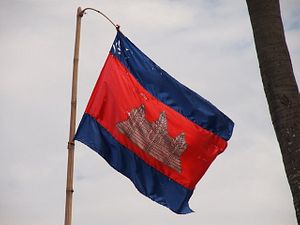Cambodia’s descent into the ranks of the world’s less savory countries appears all but complete with the dissolution of the main opposition party marked by a diplomatic twist toward Russia and the prospect of U.S. and European-imposed sanctions.
Republicans in Washington in particular have a long history of supporting Cambodia’s opposition, especially former leader of the Cambodian National Rescue Party (CNRP) Sam Rainsy, and maintain a strong distaste for Prime Minister Hun Sen, who many there regard as a communist craving absolute power.
Hence, the recent saber-rattling over Hun Sen’s crackdown on any form of dissent should be expected and threats of trade sanctions, which this country can ill-afford, treated as real.
Academics are calling the current crackdown a new era, dubbed the “Repression.” It began in September with the closure of the Cambodia Daily, among other media outlets, and the arrest of opposition leader Kem Sokha for treason.
Speculation persists that a blacklist of journalists has been drawn up and visa rules changed that will limit access into the country for foreign correspondents and non-governmental organizations (NGOs), while foreign-owned businesses fear arbitrary fines imposed by an opaque tax regime.
One journalist who recently left Cambodia was told at immigration he had been banned for five years, while stories of expat business owners being slapped with unexpected tax bills and fines abound amid speculation Phnom Penh is spurning all things Western.
In two decades of peace, Cambodia has never looked so bad. In a bid to stave off criticism preemptively, Hun Sen has been proactive in engaging regional leaders.
For instance, he was among the official mourners at the recent funeral of the Thai monarch Bhumibol Adulyadej – as opposed to the Cambodian king, given previous developments in domestic politics. Hun Sen also turned up at the APEC summit in Da Nang, Vietnam, where he got to meet with several leaders as well.
But a promise by Russia to provide election monitors – as if this would assuage international concerns regarding next July’s election and legitimize a Hun Sen victory – was dreadfully wide of the mark and straight out of an old Cold War communist play book.
In fact, in many a diplomatic corner it raised as many laughs as it did eyebrows. It was announced the same week as Hun Sen lived up to his promises — the CNRP was dissolved by the courts, leaving the country without an opposition.
Russia’s name as an independent, genuine, and trusted arbiter – to the extent that it had existed before – has taken a hammering under decades of Vladimir Putin’s stewardship.
Among other things, the killing of Alexander Litvinenko in London, state-sponsored doping in sport, the shooting down of civilian aircraft over Ukraine, meddling in foreign elections, and an ongoing crackdown on dissidents and the press at home make Russia an unlikely candidate as judge and jury for free and fair elections in Cambodia next year.
Cambodia owes $1.5 billion to Russia for war-time debts, and this was expected to be discussed ahead of the elections. This debt should be at least as big an issue here as demands that the United States write off debts incurred by the Lon Nol regime incurred while fighting the Khmer Rouge in the first half of the 1970s when Hun Sen was in their ranks.
International concern over Hun Sen and the state of what was once a democracy in Cambodia has been growing.
Even China has warned that “The Repression” would have an impact on the “popular destination for Chinese investors” and the risks of prolonged strains on relations between Washington and Phnom Penh meant sanctions “cannot be ruled out.”
It’s an unnecessary and sad state of affairs. Hun Sen was already widely considered a favorite to win next year’s general election and extend his 32 years in power even further – a feat that has earned him comparisons with Zimbabwe’s Robert Mugabe, a comparison worth highlighting at present.
But regardless of the July outcome, this poll will now not be seen as anything like free and fair and no amount of political maneuvering will change that. It’s the type of legitimacy that Hun Sen and even Russian influence simply can’t buy.
Alphonsus Pettit is a historian and contemporary writer on East Asian affairs.

































